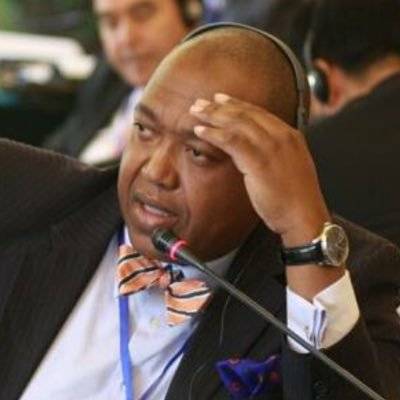The UAE has been accused of complicity in Sudan’s internal political turmoil for quite some time. Some believe that even the political machinations in eastern Sudan are actually sponsored and sustained by the government of the Emirates in Abu Dhabi.
Mohamed Ali Al-Jazouli, the head of the State of Law and Development Party in Sudan, accused the UAE of trying to reproduce a Yemeni separatist transitional council scenario in Sudan by supporting protesters calling for secession. Indeed, Abu Dhabi is accused of working with revolutionaries who are calling for political reforms and secession from Sudan in Darfur, Blue Nile and South Kordofan.
The former President of Sudan, Omar Al-Bashir, was close to the Gulf countries, particularly the UAE and Saudi Arabia. He was toppled following sustained protests which started in December 2018. Realising that he was losing his grip on power and that some of his close allies, especially the commander of the Rapid Support Forces (RSF), Mohammad Hamdan Dagalo (also known as Hemedti), had initiated discussions with the UAE for support, Bashir visited the UAE’s rival in the Middle East, Qatar, to seek political and financial backing.
Qatar was vying with rivals in the region for influence in Sudan and other countries on the Red Sea and Gulf of Aden. However, fearing the backlash after Sudanese protestors issued stern warnings to all Gulf States not to get involved in Sudan’s domestic politics, Qatar rebuffed Bashir’s advances. Members of the RSF, meanwhile, were entrenching their relationship with Saudi Arabia and the UAE.
Khartoum: Protesters burn Israel flag
Desperately hoping for financial help from the rich Gulf States to maintain his rule, Bashir deployed troops to Yemen in 2015 as part of the Saudi-led coalition fighting against the Houthi rebels. Many of the Sudanese fighters hired by Saudi Arabia were from the RSF or the Janjaweed militia. Since the fall of Bashir, Hemedti has been the sole financial beneficiary of the RSF’s involvement in the war in Yemen. Consequently, members of the RSF are not only feared, but have also become very powerful and admired for their relative wealth compared with government soldiers. Even as a fighting force, the RSF is much better equipped than the Sudanese Army.
The Sovereign Council of Sudan, an interim government structure consisting of both military and civilian administrators, has been struggling to revive the economy. Abdel Fattah Al-Burhan, a former close ally of Bashir, is the chairman of the council. There was hope when it assumed its responsibilities that politics and the economy were going to improve. However, human rights violations continue unabated and the economic situation remains dire.
According to Amnesty International, “Although the conflict in Sudan has recently been less intense than it has been in the past, all sides to the conflict continue to commit violations of international humanitarian law, such as attacks on civilians and on humanitarian convoys.” Moreover, high levels of corruption hamper hopes of economic revival. Floods which have affected most of East Africa this year have added to Sudan’s economic woes. The UN Office for the Coordination of Humanitarian Affairs (OCHA) in Sudan has pointed out that flooding and landslides triggered by torrential downpours in Sudan have affected nearly 830,000 people, destroyed hundreds of thousands of homes and damaged large tracts of farmland just before the harvest. The floods have led to the shortage of food and an increase in prices. As the situation worsens, the government of Sudan needs a miracle to avert looming protests which could lead to further turmoil in the country. This is where normalisation comes in.
READ: Saudi to pay millions for Sudan to accelerate normalisation with Israel
Over the years, US sanctions have been blamed for Sudan’s economic problems, and removing them has therefore been viewed as essential to economic recovery. Under President Donald Trump, the US has insisted that it will not remove sanctions against Sudan unless it compensates American victims of terrorism or their families. If sanctions are lifted, the Sovereign Council in Khartoum will get the credit, buying it time as it struggles to put the economy back on track. As such, Sudan has agreed to pay compensation to victims of the 1998 bombings of the US embassies in Kenya and Tanzania, attacks conducted by Osama Bin Laden’s Al-Qaida network while he was living in Sudan. To afford this, Sudan had to approach its wealthy Gulf allies for financial assistance. The UAE saw this as an opportunity to extent its normalisation campaign. It offered assistance to Sudan through Saudi Arabia, in return for which the UAE demanded that Sudan normalise relations with Israel, which it has now done.
The UAE is engaging in a dangerous game which could backfire because it ignores the polarised political positioning among the Arab countries regarding Israel. Normalisation of relations with the occupation state by more Arab countries under pressure from the UAE is likely to create a protracted intra-Arab conflict, not least because, normalisation or not, Israel will continue to colonise more Palestinian land, destroy the Palestinian economy and bomb the Palestinians in the besieged Gaza Strip.
Fake “peace” deals with regional countries are not going to make stop Israel doing whatever it wants to the people of occupied Palestine, whenever it wants to do it. This makes the “normalised” Arab governments complicit in the oppression of fellow Arabs. The UAE has bought Sudan’s normalisation with Israel. It will be interesting to see what the ordinary Sudanese people think about it.
READ: Israel rushes to normalise ties with Sudan
The views expressed in this article belong to the author and do not necessarily reflect the editorial policy of Middle East Monitor.

![Protest against normalisation deal with Israel in Khartoum, Sudan on 25 September 2020 [Abbas M. Idris/Anadolu Agency]](https://i0.wp.com/www.middleeastmonitor.com/wp-content/uploads/2020/09/Protest-against-normalization-deals-with-Israel-in-Sudan_2.jpg?fit=920%2C613&ssl=1)







